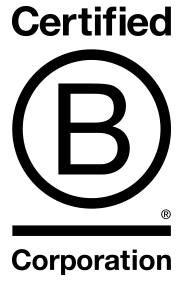Paul's Blog: Focus on Independents
It is a well-reported phenomenon how well local independent food retailers have done during the pandemic. Both their embeddedness in the local community and their commitment and delivery of better and more compassionate service have contributed to these independent retailers having a new fondness within the heart of the British people. Yet how much do independent food producers value the part that these community-orientated retailers have to play within the market as a whole? My thesis is perhaps ‘not enough’ and this week’s piece focuses on why food and drink producers should value them more because they have far more in common with their own business than the supermarkets.
Many within the industry look down their nose at brands that don’t have one or more supermarket listings as being less significant somehow. This did not used to be the case with brands such as Pipers Crisps trumpeting out that they were never listed with any supermarket; that is until they sold out to Pepsico! Some new brands don’t even bother making an effort to supply the tens of thousands of independent retailers across the country being obsessed by that holy grail of a national supermarket listing. This is completely understandable with the volumes involved in supplying multiples, and these volumes may determine whether the brand is sustainable or not. But I would encourage new and start-up brands to value the independents a little more than many do at present.
Only last week I discovered a couple of our suppliers who are supplying two different supermarkets at prices meaning that the supermarket retail price was not much different to our wholesale sell-out trade price. Complete nonsense and what message does that send to independents? If you are a small producer I would like to emphasize that it is the independent retailers that you have more in common with than the supermarkets. Like you the extra profits they make by stocking and selling volumes of your product at competitive prices might help pay for their daughter’s horse-riding lessons and not going to institutional shareholders. Like you, they are more likely treat their staff fairly, pay a real living wage and certainly don’t pay themselves more than 300 times more than their shop floor staff like the supermarkets do. Like you they are far more likely to be involved and benefit their local community rather than suck and drain resources from it. So why would you prioritise supply to supermarkets above and beyond independent retailers?
On-line food and drink retail has doubled during the pandemic as I am sure you are aware. If you are not already, then maybe as a small food producer you are thinking about which of the two giants, Ocado or Amazon, you are going to supply? Maybe both? Think about it though. Many hundreds of on-line food and drink retailers have sprung up or prospered over the past few months. Again, these are more likely to be aligned to your own values than Amazon or Ocado. Only this week, and despite vastly increased turnover and profitability over the past few weeks, Ocado wrote to many of its small artisan suppliers saying, “in light of our ambitious plans, we are asking you for a 7.5% improvement in base terms”. Many small brands have admitted to me that they do not make any profit from Ocado anyway, due to their excessive advertising demands, and some I know have already walked away even before this recent e-mail. Many more will do so if they have also received this e-mail, which is clearly just a margin grab, taking advantage of small brands at a vulnerable time.
There is no doubt that independent retailers remain the right place for artisan brands to be stocked, and with their recent unprecedented growth there is no better time to focus growing your business as a small producer with them.














